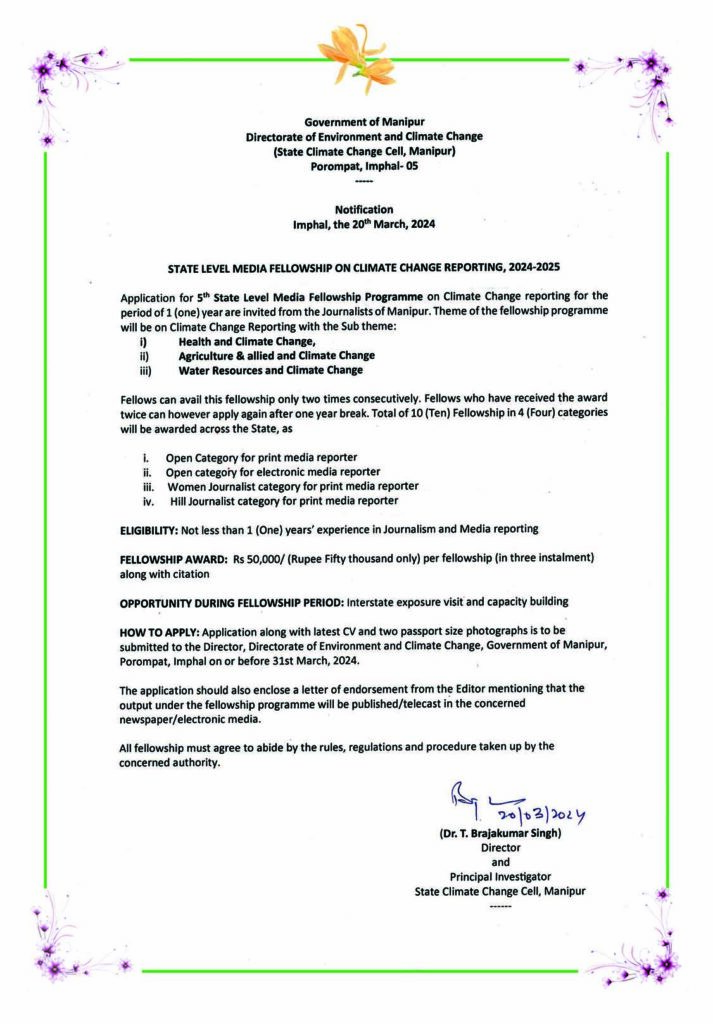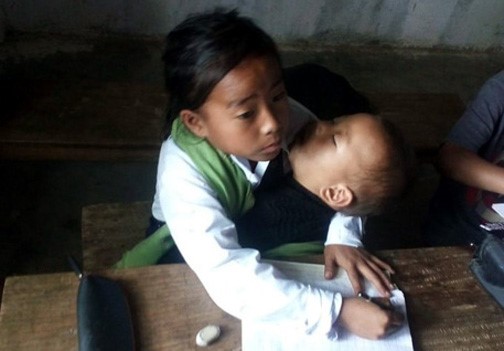One of the main features of National Education Policy, NEP 2020 is the total structural change of school curriculum and pedagogy. Instead of the present 10+2 structure, new 5+3+3+4 would be introduced. Formal teaching-learning will start compulsorily from 3 years of age.
Many experts and studies say this system will increase the cost of education both at the beginning and also in total tenure. Thus it will put extra burden on students hailing from poorer families leading to drop-outs if and when they may be unable to bear that burden.
It has become customary for all the education policies of India to lament about the dismal state of affairs prevailing in Indian education system and promise a lot about its improvement. But they ultimately end up with mere empty words. Although the Education Policy of 1986 raised a slogan of “operation blackboard” with much fanfare, nothing tangible have been achieved in deeds during the last 35 years of its implementation. Rather it opened the floodgate of privatization and commercialization of education right from school level by disowning the responsibility of governments for providing quality and universal education. As far as government and aided schools are concerned, problems like dilapidated buildings, lack of minimum infrastructure, number of vacant teacher posts in hundreds of thousands, absence of monitoring over learning levels etc., are still plaguing. As per government records, more than one lakh schools are being run with single teacher. Even the existing teachers are engaged day in and day out with nonacademic activities of all and sundry.
Now ignoring all these harsh realities, the NEP 2020 again speaks about “learning crisis” (NEP-2020 Section 2.1. Page 8) and raises the slogan of “Foundational Literacy and Numeracy” (NEP-2020 Section 2.7. Page 9). But irony is that on one hand it only made a passing comment, like, “teacher vacancies will be filled at the earliest, in a time bound manner”, on the other hand, recommended “peer tutoring and services of “community volunteers” as a panacea for changing “the country’s landscape very quickly.” By this, the government simply sets itself free from any responsibility of appointing teachers or monitoring the learning outcomes. Moreover, in the prevailing conditions, the selection of “community volunteers” is very likely to be biased with a view to furthering the interests of forces in power.
These have been pointed out by All India Save Education Committee (AISEC) in its booklet entitled as What NEP-2020 Speaks Where Reality Stands published in February 2022.
According to NEP-2020 Section 4.1 (Page 11), “The curricular and pedagogical structure of school education will be reconfigured, corresponding to the age ranges of 3-8, 8-11, 11-14, and 14-18 years, … be guided by a 5+3+3+4 design.”
To include the Early Childhood Care and Education (ECCE) the formal school education NEP-2020 Section 1.2. (Page 7) asserts, “ECCE ideally consists of flexible, multi-faceted, multi-level, play-based, activity-based, and inquiry-based learning.”
Justifying the inclusion of ECCE in the new curriculum and pedagogy of the school education NEP-2020 Section 1.7. (Page 8) says, “To prepare an initial cadre of high quality ECCE teachers in Anganwadis, current Anganwadi workers/teachers will be trained… Anganwadi workers/teachers with qualifications of 10+2 and above shall be given a 6-month certificate programme in ECCE; and those with lower educational qualifications shall be given a one-year diploma programme …”
However, AISEC argues that the ECCE will be disastrous. The first 5 years for the children of age 3 to 8 according to the NEP 2020 will involve a system called Early Childhood Care and Education (ECCE). As planned, the first 3 years of compulsory pre-school will be fun-play- activity and discovery-based method requiring well-planned and well-designed gadgets and technically equipped, trained teachers.
Obviously it will be specialized, technical and costly too. If it is made mandatory, consequences would be disastrous leading to extra monetary burden for the poor even middle class families, undesirable mental stress on kids and unhealthy competition among commercial kindergartens as we presently witness in case of private primary schools.
Further, for majority of state-run schools the new policy assigns the job to the Anganwadi workers who are already over-burdened, relatively less qualified and abysmally low-paid. These Anganwadi workers, mostly poor women, with insecure job conditions and utter neglect by the government, are in dire straits, struggling to eke out a bare living. Simply by giving one year or six months online training to Anganwadi workers will not serve the purpose. The result will be devastating. Education for overwhelming majority of students will be totally shattered. But the kindergartens, Balvatikas, the chains of pre-school private companies or the sorts will cater this ECCE to affluent families, producing a privileged section of students.
Lastly, AISEC reminded, the concept of ECCE was mooted in 2018 in the World Bank sponsored STARS project as a critical agenda in educational reforms. It was assessed that the ECCE can generate a return of US$ 25 for every US$ 1 invested on it. So it is no more than a means to provide a boon for the foreign and domestic corporate investors, adding to fast-increasing privatization.
Moreover, the pedagogical change for school education the NEP 2020 proposed is in contrast to what universally accepted pedagogy.
It is a well-recognized pedagogical fact that formal schooling should start from the age of 6 with learning of alphabets, languages and numbers. NEP 2020 drags it down to 3 years.
Then it says the Preparatory Stage (classes/grades 3, 4, 5 covering ages 8-11) will also be play based with introduction of some light textbooks. It means students up to class 5 will learn without textbooks or with very light ones. This pedagogic change was a part of the controversial World Bank sponsored DPEP (District Primary Education Programme) which has been a failure in India and across the world, simply causing deteriorating standard and quality of education. Instead, textbooks and subject teaching must be introduced in relevant forms, right from the beginning, AISEC emphasised.
The curricular needs of Middle Stage should consist of basic knowledge in subjects like (1) Language and literature in Mother tongue and English, (2) History, (3) Geography (with special emphasis on Physical Geography), (4) General Sciences (Historical developments in science and brief life sketches of great scientists), (5) Mathematics (with special emphasis on arithmetic and geometry), with a 1:30 teacher student ratio in each class/ section of it. Mind that, all this after passing through stages of schooling virtually without any textbooks. And this stage is supposed to equip students for the secondary stage where the general basis of knowledge and cognitive process has to be given the conclusive shape in order to ensure easy switch over to diversification at succeeding stages. Is the proposal funny or simply disastrous or a heinous design? AISEC asked.
Moreover, the lumping of secondary and higher secondary stages together under NEP-2020 needs to be discussed seriously. NEP-2020 Section 4.9 (Page 13) reads, “Students will be given increased flexibility and choice of subjects to study, particularly in secondary school – … the new distinguishing feature of secondary school education. There will be no hard separation among ‘curricular’, ‘extracurricular’, or ‘co-curricular’, among ‘arts’, ‘humanities’, and ‘sciences’, or between ‘vocational’ or ‘academic’ streams.”
The NEP 2020, in course of changing schooling structure lumps together present secondary and higher secondary stages into a High School (secondary) stage (class 9, 10, 11, 12) (curricular and extracurricular). As said above, there will be no text books up to class 5. But after class 8 students will be loaded with 24 subjects with extra 40 optional subjects. This is not only unscientific and irrational; it will be burdensome and also put severe mental stress on students and teachers, AISEC argued.
Notably, lack of sufficient number of teachers and proper infrastructure are plaguing most of the public funded secondary and higher secondary schools. Added to these, the idea of a ‘multidisciplinary holistic’ education, is a utopian concept leading to anarchy in teaching and learning; in it, a physics student may have a combination with fashion design if he or she pleases at that.
Here, AISEC raises some questions: Will not such combinations stand against comprehensive learning of either physics or fashion design? Is a boy or girl of 14-15 years expected to have enough maturity to choose his or her subjects properly?
Further whereas interdisciplinary sciences like molecular biology or geophysics have developed with progress of science, the kind of multidisciplinary approach of the NEP 2020 is totally unscientific and incomprehensive. Another point to consider is that with the abolition of a separate secondary stage and an end – secondary examination, a large number of needy students who could have sought for a job on the strength of the secondary school certificate, will be deprived of that chance and will tend to drop out.











1 thought on “New Structural Changes to be Introduced by School Curriculum and Pedagogy Under NEP 2020 Is Contradictory and Can Prove Counterproductive: AISEC”
A rather late write up. Most concerns mentioned here were already expressed by many during solicitation of opinions from public & stakeholders way back in 2018-19. One can expect hiccups in the initial year of any new policy implementation, but with experience and in due time, the path will smoothen out. Firmly believe the NEP 2020 is going to bring in paradigm shift in education for the better in the country.
Comments are closed.